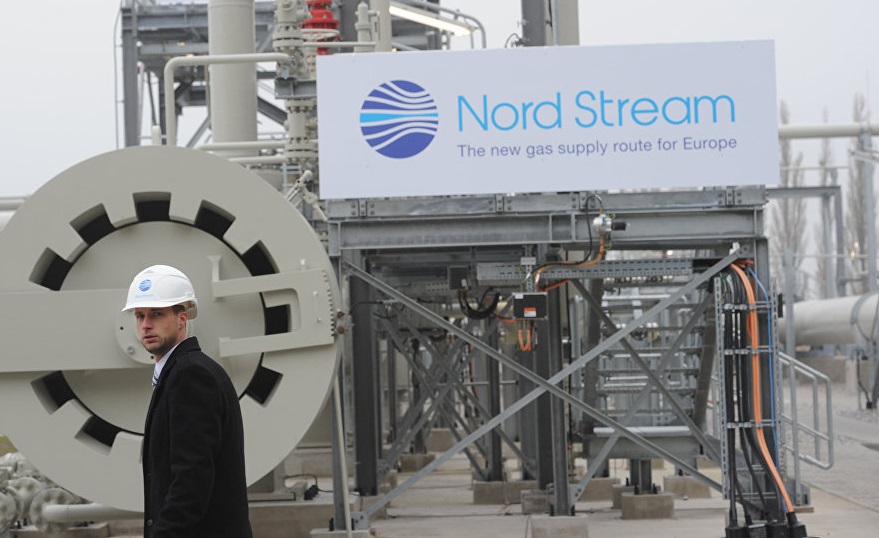The Russian-backed Nord Stream 2 gas pipeline project, which would increase Russia’s gas exports to Europe by way of Germany and the Baltic Sea, may face challenges as the United States House of Representatives supported sanctions against the venture, in a symbolic resolution issued on Tuesday.
American lawmakers condemned the $10.7 billion project and urged EU countries to oppose the “drastic step backward for European energy security and United States interests.”
“Because [Nord Stream II] has such a potentially large impact on the national security of some of our largest partners in the world, it has an impact on our national security,” the resolution cited Sanda Oudkirk, Deputy Assistant Secretary of State for Energy Diplomacy, as saying.
What is seen as the energy threat for the U.S. is a joint venture of Russia’s Gazprom, France’s Engie, Austria’s OMV AG, UK-Dutch Royal Dutch Shell, as well as Germany’s Uniper and Wintershall. Running roughly parallel to the existing Nord Stream pipeline, Nord Stream 2 could deliver 55 billion cubic meters (or 2 trillion cubic feet) of Russian natural gas per year to the European Union through the Baltic Sea, bypassing overland routes that cross through Ukraine.
While some European countries have welcomed the project, it was opposed by Ukraine, Poland and the Baltic States, as well as by the U.S., which is looking to export liquified natural gas (LNG) to Europe.
Tuesday’s resolution has also urged U.S. President Donald Trump to do everything possible, “to support European energy security through diversification in order to reduce the EU’s dependence on Russia.”
Earlier this year Trump said the U.S. was not planning to slap sanctions against companies involved in the Russian project.
“We are not looking to do that. We just think it is very unfortunate for the people of Germany that Germany is paying billions and billions of dollars a year for their energy to Russia,” Trump said while meeting with Polish President Andrzej Duda in September, according to reports by Sputnik.
Germany is the largest buyer of Russian natural gas. In 2017, the country accounted for 27.5 percent of the total exports of Gazprom, Russia’s state-run gas giant. According to a recent company report, Russia’s natural gas exports to Germany increased 12.2 percent in the first half of 2018 compared to the same period of last year.
The Kremlin has already put blame on American lawmakers for its recent actions, accusing Washington of attempting to undermine Nord Stream 2’s construction, and call it an example of unfair competition to derail what Russia casts as a purely commercial project.
“We do not consider it correct, we do not consider it acceptable for ourselves, because we are talking about attempts to prevent the implementation of a purely commercial economic project, and a commercial project that is actually not only in the interests of the gas supplier – the Russian Federation but also of gas consumers, first of all, Germany as the country of the European Union,” Kremlin spokesman Dmitry Peskov said Wednesday, according to reports by Gazeta.Ru.
The document adopted on Tuesday by the House of Representatives is advisory in nature and not technically law. European allies are not obliged to comply with it.
Earlier this week, Francis Fannon, the U.S. Assistant Secretary of State for Energy Resources, told reporters in a teleconference that the U.S. has opportunities to impose sanctions on Nord Stream 2, and that the State Department is studying options for such action.
“The firms working in Russian energy pipeline sector are engaging a lot of business that carries sanctions risk. We continue to review potential sanctions actions,” Fannon said Tuesday according to reports by Sputnik.
“The US government has the ability to sanction Russia export energy pipelines under section 232 the Countering America’s Adversaries Through Sanctions Act (CAATSA),” he added, mentioning the law that stipulates the possibility of imposing unilateral sanctions on companies which are directly involved in Nord Stream 2.







 The Mine Action Agency of Azerbaijan (ANAMA) reported on Thursday the discovery of a significant amount of explosives in the Khojavand district of ...
The Mine Action Agency of Azerbaijan (ANAMA) reported on Thursday the discovery of a significant amount of explosives in the Khojavand district of ...
 Iran has refuted reports of alleged damage to Shimon Peres Negev Nuclear Research Centre located southeast of Dimona, Israel, during the recent air...
Iran has refuted reports of alleged damage to Shimon Peres Negev Nuclear Research Centre located southeast of Dimona, Israel, during the recent air...
 Iran’s Foreign Minister, Hossein Amir-Abdollahian, has labeled a foiled Israeli drone attack in certain parts of the country as a "failure" for Isr...
Iran’s Foreign Minister, Hossein Amir-Abdollahian, has labeled a foiled Israeli drone attack in certain parts of the country as a "failure" for Isr...



